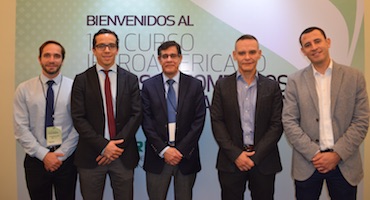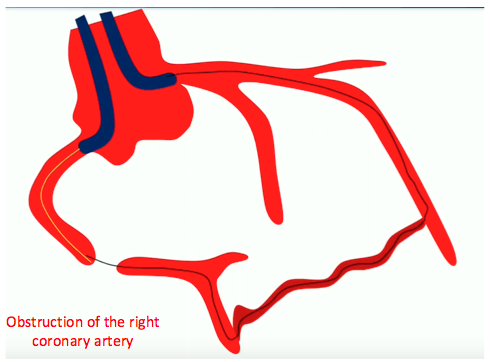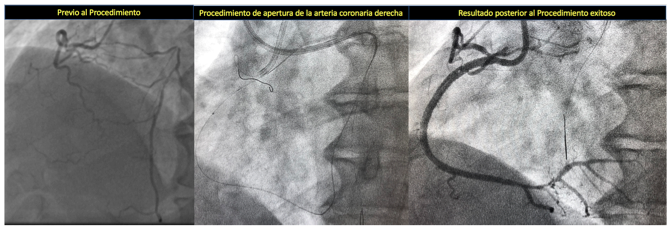Recent news (Blog)
Interventional Cardiology Specialty First Ibero-American course on complex cases and transradial access
- Hits: 2813
San José, Costa Rica. February, 2019.

The first Ibero-American course on complex cases and transradial access was held in Costa Rica from Monday 11 to Wednesday February 13 at the Holiday Inn Hotel, located in Plaza Escazú, and at the Clínica Bíblica Hospital in San José. It was aimed at specialists in the area of Interventional Cardiology in Central America, Mexico, Ecuador, Peru and Colombia. This important event was attended by health professionals from Europe, such as Spain and Italy.
The conference was attended by prestigious doctors from the Clínica Bíblica Hospital, such as Dr. Jorge Andrés Chavarría Víquez, Dr. Jorge Arauz Chavarría, Dr. Luis Abel Gutiérrez Jaikel and Dr. Mauricio Obon Dent, who, from the Cameron surgery room, transmitted the procedures of complex cases performed in real time, such as chronic coronary total occlusions, diseases of the main coronary trunk and bifurcations to the attendees.
The objective of this project is to generate new alternatives for patients with coronary total obstructions, since, as Dr. Jorge A. Chavarría mentions, for this type of procedures constant preparation and training is needed on the necessary instruments, the safest approach and interdisciplinary management, in order to increase the success in treating these obstructions in a minimally invasive way.
Similarly, Chavarria mentions that, in specific situations, the treatment of these injuries allows the patient to reduce the possibility of having a long-term infarction, as well as to optimize the treatment of people with heart failure associated with the coronary artery disease and improve their quality of life, especially when they are not considered candidates for coronary bypass surgery. He also emphasizes that there are currently patients with certain characteristics where scientific studies show a lower mortality rate if these injuries are treated properly.
According to Dr. Mauricio Obon, the importance of having this type of courses is to show new techniques and exchange knowledge and experiences with leading opinion doctors in the field, as well as to demonstrate the enhancements on the technique. He also stressed the opportunity for Costa Rica to demonstrate the progress being made in the field of chronic coronary occlusions.
Finally, as a closing ceremony of the event, a tribute was paid to Dr. Carlos Calderón Calvo, a pioneer in cardiology in Costa Rica, for his outstanding career.
About the topic:
To delve deeper into the topic, Dr. Luis Gutierrez Jaikel explains what coronary occlusions are so that the public may understand what was practiced during the surgery procedure which was transmitted in real time to the attendees.
The coronary arteries are responsible for transporting the blood to the heart. If these are not working properly, the amount of oxygen and nutrients to the heart would be limited and when this happens suddenly, or, in an acute phase, an acute infarction can occur. It should be noted that if the obstruction is detected after 3 months of the event and there is a complete obstruction, it means that it was not treated in time and the procedure to restore the artery becomes more complex.
For his part, Dr. Jorge Arauz Chavarría explained the clinical benefits that come with the practice of this procedure. He mentions that there is a significant group of patients in Costa Rica with this condition and can lead them to have problems when practicing some degree of physical activity; that is why he recommends that health professionals know about new techniques and technologies of this type of treatment which help improve the quality of life of patients.

Diagram showing the attempt to open an obstruction of the right coronary artery with the retrograde approach from the left circulation to reach the catheter that is in the right coronary artery.

An illustration of one of the cases performed during the medical congress. Opening of the right coronary artery with bilateral arterial access and the retrograde approach as shown in the previous diagram.
For more information or to schedule an appointment with our professionals, you can call 2522 1000 or visit our website at mivida.cr

